- News
- India News
- President Joe Biden: What it means for India, China
Trending
This story is from January 20, 2021
President Joe Biden: What it means for India, China
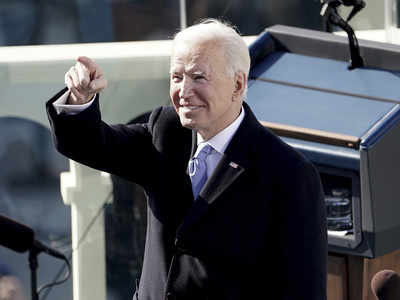
NEW DELHI: The sun has finally set on the Trump administration with Joe Biden taking oath as the 46th president of the United States. This means that New Delhi is going to keep a close eye on Washington for the next few weeks to get a sense of how future India-US ties will shape up.
Going by what Biden and his cabinet picks have said in the run-up to the inauguration, here's what Biden administration could mean for ...
Broader US-India ties
The Biden administration has given an encouraging preview of what's to come with top officials such as secretary of state nominee Anthony Blinken and defence secretary Lloyd Austin batting for stronger India-US ties.
Live updates: Biden's inauguration
Endorsing the India policy of outgoing US President Donald Trump recently, Blinken had said that India has been a "bipartisan success story" of successive American administrations.
 Secretary of state nominee Anthony Blinken has endorsed stronger India-US ties (Reuters Photo)
Secretary of state nominee Anthony Blinken has endorsed stronger India-US ties (Reuters Photo)
“The Vice-President [Biden] has long been a champion of stronger ties with India. I saw this firsthand, I started working for him in 2002 on the Senate Foreign Relations Committee. Then, of course, the Obama-Biden administration and his years as Vice-President.
"But if you go back 15 years, Joe Biden had a vision for the future of US-India relations. In 2006, he said, my dream is that in 2020, the two closest nations in the world will be India and the United States,” Blinken said.
He expressed confidence that Biden will act to turn this "terrific vision" into a reality.
China policy and the Indo-Pacific
Since the time the Democrats were last in power, China has become far more assertive, aggressive and ambitious.
Blinken has admitted there was “no doubt” China posed the most significant challenge to Washington of any nation.
In a positive sign for India, Washington now relies heavily on New Delhi to counter China's hegemony in the Indo-Pacific region.
Blinken recently said that India and US face a common challenge in the form of an "increasingly assertive" China and New Delhi has to be a key partner in engaging with Beijing from a position of strength.
 Chinese People's Liberation Army (PLA) soldiers during a drill in Xinjiang region. The US is growing wary of China's expansionist behaviour (AFP Photo)
Chinese People's Liberation Army (PLA) soldiers during a drill in Xinjiang region. The US is growing wary of China's expansionist behaviour (AFP Photo)
Kurt Campbell, who is going to be the Indo-Pacific coordinator in the new administration, has advocated the need for a balance of power in the region and called for an allied and partner coalition to address China’s challenge.
Campbell previously served as the deputy assistant secretary of defence for Asia in the Obama administration and had facilitated the first official-level India-US dialogue on China and the Asia-Pacific in 2009.
The Biden administration also believes that Trump was right in taking a tougher approach to China - even if he did not agree with all his methods. It endorsed the Trump administration’s assessment on Tuesday that the Chinese Communist Party was committing genocide against Muslim Uighurs in Xinjiang.
All this indicates that US under Biden is likely to remain tough on China and continue its pro-India policy to counter Beijing.
Defence
On the defence front, the Biden administration has said that it wants to bolster ties with India to tackle the threat posed by China.
Defence secretary nominee Lloyd J Austin on Tuesday said that he will operationalise India's "Major Defence Partner" status and build upon the existing strong defence cooperation between the two countries.
"If confirmed, my overarching objective for our defence relationship with India would be to continue elevating the partnership. I would further operationalise India's "Major Defence Partner" status and continue to build upon existing strong defence cooperation to ensure the US and Indian militaries can collaborate to address shared interests," Austin said.
 India, US, Japan and Australia took part in the mega Malabar naval exercise in November last year. It was the first time in 13 years that all four nations took part in the drill together.
India, US, Japan and Australia took part in the mega Malabar naval exercise in November last year. It was the first time in 13 years that all four nations took part in the drill together.
Austin also said he would seek to deepen defence cooperation with India through the Quad security dialogue and other regional multilateral engagements.
Quad is a four-nation grouping of India, US, Japan and Australia viewed by China as a threat to its dominance in the Indo-Pacific region.
Trade
Trade issues have often been the primary irritant in the otherwise friendly ties between India and US. This is unlikely to witness any improvement under Biden.
While India can expect less rhetoric (think Trump's oft-repeated jibe over Harley-Davidson tariffs), the Biden administration will continue to put pressure on New Delhi on the trade front.
During the Obama administration, too, trade friction between New Delhi and Washington was rampant.
Besides, Biden has his own version of Make America Great Again. Bill Burns, a top adviser to Biden, has said: “First and foremost, American foreign policy must support domestic revival.”
H-1B and immigration
One of the first things that Biden is expected to do after assuming office is lift the suspension on H-1B visas.
The Trump administration's move to impose a temporary suspension on H-1B visas last year in the wake of the Covid-19 pandemic came as a body blow to Indian IT professionals.
Biden also plans to increase the number of high-skilled visas, including the H-1B, and eliminate the limit on employment-based visas by country, both of which are expected to benefit tens of thousands of Indian professionals.

With Kamala Harris as his deputy, Joe Biden is also expected to reverse the move of the Trump administration to revoke work permits to the spouses of H-1B visas, which had adversely impacted a large number of Indian families in the US.
However, due to the Covid pandemic and a resultant job crisis, no one is willing to bet on how far Biden would actually go to ease US immigration policies.
Some experts believe that H-1B visas are unlikely to return in the way they used to be.
On immigration, Biden is likely to be warmer compared Trump. He has even described Trump's immigration policies as "cruel" and "inhumane".
Biden plans to unveil a sweeping immigration bill on Day One of his administration, hoping to provide an eight-year path to citizenship for an estimated 11 million people living in the US without legal status.
Biden is also expected to take swift executive actions to reverse other Trump immigration actions, including an end to the prohibition on arrivals from several predominantly Muslim countries.
Climate
Biden is expected to sign an executive order right after assuming office to bring the US back into the Paris Accord on climate, reversing predecessor Donald Trump's decision.
This will pave way for the deepening of cooperation between the two countries to tackle the climate crisis together.
 Trump departs after announcing his decision to withdraw from the landmark Paris pact. Biden is expected to reverse Trump's decision on his first day in office. (Reuters Photo)
Trump departs after announcing his decision to withdraw from the landmark Paris pact. Biden is expected to reverse Trump's decision on his first day in office. (Reuters Photo)
Blinken has said there are many ways in which India and US can deepen the cooperation between them and one area that has a lot of promise and necessity is climate.
“Prime Minister (Narendra) Modi has been a very strong advocate of renewable energy and different technologies. I think there is very strong potential for our countries to work together," Blinken had said.
However, India can expect to come under fire from him on coal use.
Going by what Biden and his cabinet picks have said in the run-up to the inauguration, here's what Biden administration could mean for ...
Broader US-India ties
The Biden administration has given an encouraging preview of what's to come with top officials such as secretary of state nominee Anthony Blinken and defence secretary Lloyd Austin batting for stronger India-US ties.
Biden himself has been a vocal proponent of friendly ties with India and is a familiar face in New Delhi since his days as vice-president under President Barack Obama.
Live updates: Biden's inauguration
Endorsing the India policy of outgoing US President Donald Trump recently, Blinken had said that India has been a "bipartisan success story" of successive American administrations.
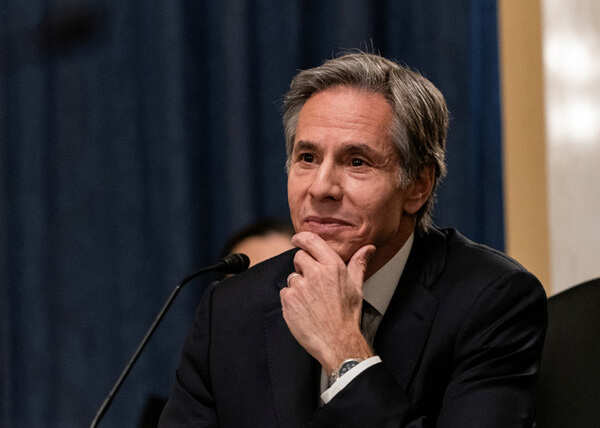
“The Vice-President [Biden] has long been a champion of stronger ties with India. I saw this firsthand, I started working for him in 2002 on the Senate Foreign Relations Committee. Then, of course, the Obama-Biden administration and his years as Vice-President.
"But if you go back 15 years, Joe Biden had a vision for the future of US-India relations. In 2006, he said, my dream is that in 2020, the two closest nations in the world will be India and the United States,” Blinken said.
He expressed confidence that Biden will act to turn this "terrific vision" into a reality.
China policy and the Indo-Pacific
Since the time the Democrats were last in power, China has become far more assertive, aggressive and ambitious.
Blinken has admitted there was “no doubt” China posed the most significant challenge to Washington of any nation.
In a positive sign for India, Washington now relies heavily on New Delhi to counter China's hegemony in the Indo-Pacific region.
Blinken recently said that India and US face a common challenge in the form of an "increasingly assertive" China and New Delhi has to be a key partner in engaging with Beijing from a position of strength.
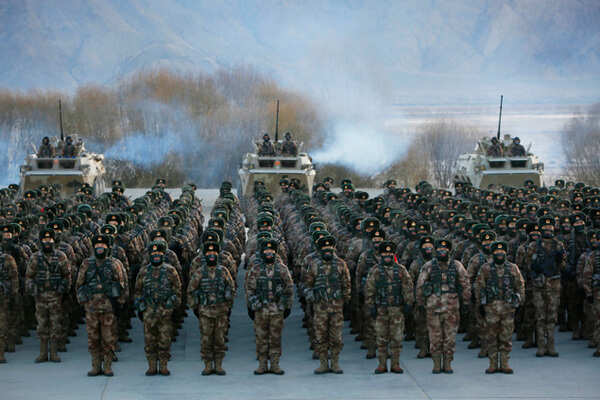
Kurt Campbell, who is going to be the Indo-Pacific coordinator in the new administration, has advocated the need for a balance of power in the region and called for an allied and partner coalition to address China’s challenge.
Campbell previously served as the deputy assistant secretary of defence for Asia in the Obama administration and had facilitated the first official-level India-US dialogue on China and the Asia-Pacific in 2009.
The Biden administration also believes that Trump was right in taking a tougher approach to China - even if he did not agree with all his methods. It endorsed the Trump administration’s assessment on Tuesday that the Chinese Communist Party was committing genocide against Muslim Uighurs in Xinjiang.
All this indicates that US under Biden is likely to remain tough on China and continue its pro-India policy to counter Beijing.
Defence
On the defence front, the Biden administration has said that it wants to bolster ties with India to tackle the threat posed by China.
Defence secretary nominee Lloyd J Austin on Tuesday said that he will operationalise India's "Major Defence Partner" status and build upon the existing strong defence cooperation between the two countries.
"If confirmed, my overarching objective for our defence relationship with India would be to continue elevating the partnership. I would further operationalise India's "Major Defence Partner" status and continue to build upon existing strong defence cooperation to ensure the US and Indian militaries can collaborate to address shared interests," Austin said.

Austin also said he would seek to deepen defence cooperation with India through the Quad security dialogue and other regional multilateral engagements.
Quad is a four-nation grouping of India, US, Japan and Australia viewed by China as a threat to its dominance in the Indo-Pacific region.
Trade
Trade issues have often been the primary irritant in the otherwise friendly ties between India and US. This is unlikely to witness any improvement under Biden.
While India can expect less rhetoric (think Trump's oft-repeated jibe over Harley-Davidson tariffs), the Biden administration will continue to put pressure on New Delhi on the trade front.
During the Obama administration, too, trade friction between New Delhi and Washington was rampant.
Besides, Biden has his own version of Make America Great Again. Bill Burns, a top adviser to Biden, has said: “First and foremost, American foreign policy must support domestic revival.”
H-1B and immigration
One of the first things that Biden is expected to do after assuming office is lift the suspension on H-1B visas.
The Trump administration's move to impose a temporary suspension on H-1B visas last year in the wake of the Covid-19 pandemic came as a body blow to Indian IT professionals.
Biden also plans to increase the number of high-skilled visas, including the H-1B, and eliminate the limit on employment-based visas by country, both of which are expected to benefit tens of thousands of Indian professionals.
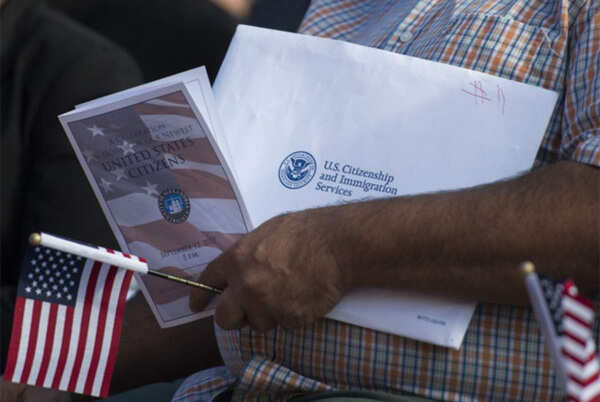
With Kamala Harris as his deputy, Joe Biden is also expected to reverse the move of the Trump administration to revoke work permits to the spouses of H-1B visas, which had adversely impacted a large number of Indian families in the US.
However, due to the Covid pandemic and a resultant job crisis, no one is willing to bet on how far Biden would actually go to ease US immigration policies.
Some experts believe that H-1B visas are unlikely to return in the way they used to be.
On immigration, Biden is likely to be warmer compared Trump. He has even described Trump's immigration policies as "cruel" and "inhumane".
Biden plans to unveil a sweeping immigration bill on Day One of his administration, hoping to provide an eight-year path to citizenship for an estimated 11 million people living in the US without legal status.
Biden is also expected to take swift executive actions to reverse other Trump immigration actions, including an end to the prohibition on arrivals from several predominantly Muslim countries.
Climate
Biden is expected to sign an executive order right after assuming office to bring the US back into the Paris Accord on climate, reversing predecessor Donald Trump's decision.
This will pave way for the deepening of cooperation between the two countries to tackle the climate crisis together.
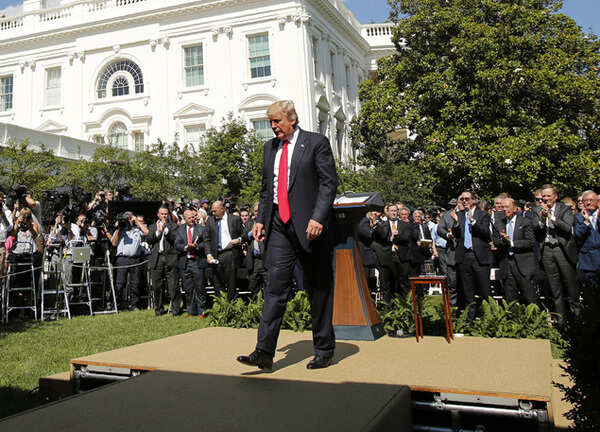
Blinken has said there are many ways in which India and US can deepen the cooperation between them and one area that has a lot of promise and necessity is climate.
“Prime Minister (Narendra) Modi has been a very strong advocate of renewable energy and different technologies. I think there is very strong potential for our countries to work together," Blinken had said.
However, India can expect to come under fire from him on coal use.
End of Article
FOLLOW US ON SOCIAL MEDIA










